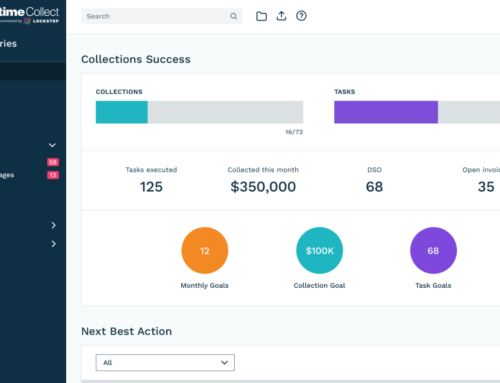Invoice disputes can be a huge time suck for your AR team, delay invoice payments, be costly to resolve and cause you to miss your AR KPI goals. Invoice disputes can result from any number of problems including:
- Missing documents like bills of lading or purchase order’s
- Wrong freight mode such as LTL versus full truck load
- Invoice errors on price, extension or addition among others
- Incorrect quantity
- Quality problems
- Missing parts
- Subscription issues
Disputes can be a symptom of weaknesses in your company’s transaction cycle and/or failure to follow your customers’ routing guides or purchase orders.
Reporting invoice disputes regularly is an essential step in resolving disputes. You should be reporting on invoice disputes regularly for two reasons.
Involve Stakeholders
Stakeholders in other departments need to be made aware of disputes so they can work to resolve them promptly. Don’t assume other stakeholders are aware of disputes. Notify stakeholders of disputes and follow up regularly to facilitate resolution. Prompt resolution is essential. The older a dispute becomes the more costly it will be to your company.
Fix Cause of Problem
Regular reporting of disputes to stakeholders will help to identify systemic failures in your company’s transaction cycle and failure to follow customers’ routing guides or purchase orders. Disputes caused by failure to follow your customers’ routing guides or purchase orders can become very costly and risk the loss of a customer. Resolving disputes without addressing the cause of the problem will not keep disputes from recurring. Regular reporting of disputes will help to keep the focus on fixing the problem.
Avoiding, managing and reporting on invoice disputes regularly is much easier to do if you have automated accounts receivable and collections. With automated accounts receivable you can leverage a number of tools to quickly deal with invoice disputes.
Customer Portal
One of the features available on a customer portal is the ability for a customer to report a dispute and indicate the reason for the dispute. The first time you become aware of a dispute is often not until a customer takes an unauthorized deduction or one of your team makes a collection call. A customer portal can speed up the dispute resolution process and facilitate communication to your stakeholders.
Work Flow
Work flow capability facilitates communication with stakeholders. You can easily distribute electronic copies of invoices, statements, purchase orders and other documents to speed up the resolution process, and reduce time spent on paper shuffling.
Online Notes
With online notes you can have the history of discussions with customers and stakeholders on disputes at your fingertips. This speeds up the process and reduces needless clerical tasks.
Automated Invoicing
Automated invoicing with invoice templates reduces the number of billing errors and resultant disputes, and saves time spent recreating invoices.
Reporting invoice disputes regularly will help you to resolve them promptly. Automated accounts receivable and collections can make the dispute resolution process more efficient and faster.
The key to successful automation of accounts receivable and collections is to work with an experienced software partner.
Lockstep Collect is a market leader in cloud-based credit and collection platforms. Lockstep Collect can help you automate your accounts receivable and manage disputes quickly and efficiently.
If you would like to learn more about how you can benefit from automation of accounts receivable and collections, please contact Lockstep Collect at www.lockstep.io.


